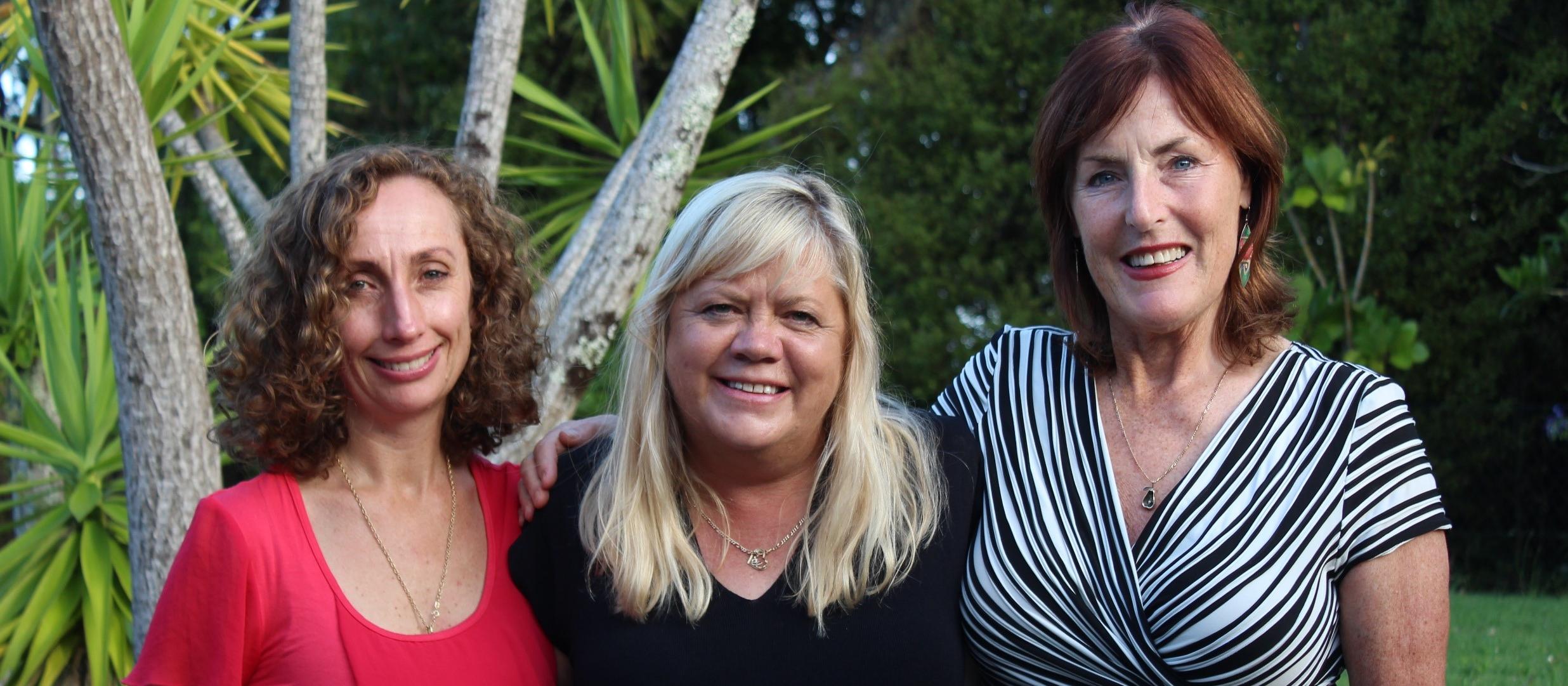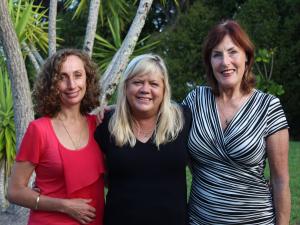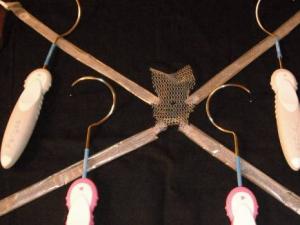Respiratory physician Lutz Beckert considers chronic obstructive pulmonary disease management, including the prevention of COPD, the importance of smoking cessation and pulmonary rehabilitation, and the lifesaving potential of addressing treatable traits. He also discusses the logic of inhaler therapy, moving from single therapy to dual and triple therapy when indicated, as well as other aspects of management
Independent experts to follow up ACC as it reassesses declined mesh-injury claims
Independent experts to follow up ACC as it reassesses declined mesh-injury claims

We're republishing this article in our Undoctored free access space so it can be read and shared more widely. Please think about supporting us and our journalism – subscribe here
Zahra Shahtahmasebi catches up on latest moves to resolve concerns about compensation for injuries sustained by patients who have had surgical mesh inserted
- ACC has accepted lobby group Mesh Down Under’s recommendation to allow an independent medicolegal panel to oversee its reassessment of declined claims of mesh injury.
- The panel will review the first 10 claims ACC proposes to leave declined, as well as any new cases it proposes to decline.
- Following this, ACC, Mesh Down Under and the panel will meet to discuss whether the panel should continue to be involved.
Patients affected by surgical-mesh injuries have finally won a concession from ACC.
On 28 October last year, the compensation agency announced it would reassess previously declined surgical mesh claims, on request, using newly developed guidance.
However, at that time it had not agreed to establish an independent medicolegal panel, as requested by lobby group Mesh Down Under.
Group co-leader Charlotte Korte says it has taken six months, but the panel has been set up and will be a positive step forward in ensuring reassessments are fair and robust.
“Having an extra pair of eyes will provide reassurance and will help resolve a lot of trust issues for those who have been mesh-injured,” Ms Korte says.
The independent panel is made up of Dunedin barrister Alison Douglass and New Plymouth consultant urologist Hazel Ecclestone.
Ms Douglass, a specialist in health and disability law, has an extensive background in consumer advocacy. Her medicolegal expertise includes ACC legislation.
She formerly co-chaired the ACC Research Ethics Committee and the Wellington Ethics Committee.
Ms Douglass sees the role as adding a layer of transparency to ACC’s reassessment process and providing a level of independent oversight of the proposed declined claims.
“The advantage of having a medicolegal panel working together is that we can sound each other out, and give more rigour to how these claims can be considered and whether they are eligible for (classed as) treatment injury.”
UK-trained Dr Ecclestone has significant clinical and decision-making experience with surgical mesh, both in the UK and New Zealand.
Prior to moving to New Zealand last July, she worked with the pelvic floor multidisciplinary team at St Mark’s Hospital, London, the largest such team in Europe. She was a member of the regional mesh multidisciplinary team for North London.
These experiences, and the fact she is new to New Zealand so has no vested interest from having submitted mesh cases, make her an “independent pair of eyes”, she says.
ACC chief customer officer Emma Powell says the panel will review the first 10 claims submitted for reassessment that ACC proposes stay declined, as well as any new surgical claims ACC proposes to decline.
The panel will provide independent comment on ACC’s decisions in the context of the Accident Compensation Act 2001 and of the new guidance, developed with medical experts and based on latest medical evidence and understanding of surgical-mesh injuries.
“ACC recognises the severity and impact of surgical-mesh injuries and we are committed to a fair and transparent reassessment process,” says Ms Powell.
After the first 10 claims have been reviewed, ACC will meet with the panel members and Mesh Down Under to discuss whether the panel continues to be involved with the process.
Ms Korte says their involvement should continue for the entire reassessment process; this is what mesh-injured people are expecting.
As to the outcomes of reassessment, Ms Powell says some claims declined in the past may now get a different decision based on the new guidance.
However, as each claim is assessed based on individual circumstances, it is difficult to know what change there might be in the claim-acceptance rate.
From 1 July 2005 to 31 October 2020, there have been 1735 surgical-mesh claims lodged. Of those, 1361 have been accepted and 374 declined.
After the reassessment opportunity was announced on 28 October, there were 85 claims received up until 22 February 2021. Of these, 17 have been accepted and the rest are still being investigated.
The most recent data from ACC shows there have been another 198 new claims of mesh injury receiveded up until 22 April, where 81 have been accepted, eight have been declined or withdrawn and the rest are still being investigated.
As well as declined claims, the panel has also requested to look over accepted claims, to see how the reassessment process is going, says Ms Douglass.
Transparency is important, she adds, especially with large class-action suits under way overseas, relating to damaging medical devices like mesh.
New Zealand is unique because it has ACC, and so the panel’s focus will be on what can and can’t be accepted as a treatment injury claim.
The final decision over whether the claim will be accepted or declined rests with ACC, but the panel has insisted its advice be on the patient’s file, says Ms Douglass.
Dr Ecclestone says a lot of mesh-injured people in New Zealand have been sidelined and not been listened to.
“This [process] is a reflection of the fact that they’ve been dismissed when there’s really serious things that have happened to them, and that’s what I’m hoping to add to this, to be another listening voice.”
The use of mesh in the UK was “paused/banned” in 2016, the year she did her fellowship, so she was “taking mesh out rather than putting it in”.
The pause wasn’t lifted until specific credentialling and specialist mesh centres were implemented.
Ms Korte says New Zealand’s continued use of surgical mesh is surprising, given the fact the country lacks appropriate credentialling for clinicians and specialist mesh centres. She says research continues to highlight issues with mesh implantation and removal.
The practice continues because people believe these surgeries are often successful in the short and medium term: “That’s not okay when they know how severe these complications are, and they are severe – they’re life altering.”
She says strict monitoring should be in place until practitioners are credentialled.









![Barbara Fountain, editor of New Zealand Doctor Rata Aotearoa, and Paul Hutchison, GP and senior medical clinician at Tāmaki Health [Image: Simon Maude]](/sites/default/files/styles/thumbnail_cropped_100/public/2025-03/Barbara%20Fountain%2C%20editor%20of%20New%20Zealand%20Doctor%20Rata%20Aotearoa%2C%20and%20Paul%20Hutchison%2C%20GP%20and%20senior%20medical%20clinician%20at%20T%C4%81maki%20Health%20CR%20Simon%20Maude.jpg?itok=-HbQ1EYA)
![Lori Peters, NP and advanced health improvement practitioner at Mahitahi Hauora, and Jasper Nacilla, NP at The Terrace Medical Centre in Wellington [Image: Simon Maude]](/sites/default/files/styles/thumbnail_cropped_100/public/2025-03/2.%20Lori%20Peters%2C%20NP%20and%20advanced%20HIP%20at%20Mahitahi%20Hauora%2C%20and%20Jasper%20Nacilla%2C%20NP%20at%20The%20Terrace%20Medical%20Centre%20in%20Wellington%20CR%20Simon%20Maude.jpg?itok=sUfbsSF1)
![Ministry of Social Development health and disability coordinator Liz Williams, regional health advisors Mary Mojel and Larah Takarangi, and health and disability coordinators Rebecca Staunton and Myint Than Htut [Image: Simon Maude]](/sites/default/files/styles/thumbnail_cropped_100/public/2025-03/3.%20Ministry%20of%20Social%20Development%27s%20Liz%20Williams%2C%20Mary%20Mojel%2C%20Larah%20Takarangi%2C%20Rebecca%20Staunton%20and%20Myint%20Than%20Htut%20CR%20Simon%20Maude.jpg?itok=9ceOujzC)
![Locum GP Helen Fisher, with Te Kuiti Medical Centre NP Bridget Woodney [Image: Simon Maude]](/sites/default/files/styles/thumbnail_cropped_100/public/2025-03/4.%20Locum%20GP%20Helen%20Fisher%2C%20with%20Te%20Kuiti%20Medical%20Centre%20NP%20Bridget%20Woodney%20CR%20Simon%20Maude.jpg?itok=TJeODetm)
![Ruby Faulkner, GPEP2, with David Small, GPEP3 from The Doctors Greenmeadows in Napier [Image: Simon Maude]](/sites/default/files/styles/thumbnail_cropped_100/public/2025-03/5.%20Ruby%20Faulkner%2C%20GPEP2%2C%20with%20David%20Small%2C%20GPEP3%20from%20The%20Doctors%20Greenmeadows%20in%20Napier%20CR%20Simon%20Maude.jpg?itok=B0u4wsIs)
![Rochelle Langton and Libby Thomas, marketing advisors at the Medical Protection Society [Image: Simon Maude]](/sites/default/files/styles/thumbnail_cropped_100/public/2025-03/6.%20Rochelle%20Langton%20and%20Libby%20Thomas%2C%20marketing%20advisors%20at%20the%20Medical%20Protection%20Society%20CR%20Simon%20Maude.jpg?itok=r52_Cf74)
![Specialist GP Lucy Gibberd, medical advisor at MPS, and Zara Bolam, urgent-care specialist at The Nest Health Centre in Inglewood [Image: Simon Maude]](/sites/default/files/styles/thumbnail_cropped_100/public/2025-03/7.%20Specialist%20GP%20Lucy%20Gibberd%2C%20medical%20advisor%20at%20MPS%2C%20and%20Zara%20Bolam%2C%20urgent-care%20specialist%20at%20The%20Nest%20Health%20Centre%20in%20Inglewood%20CR%20Simon%20Maude.jpg?itok=z8eVoBU3)
![Olivia Blackmore and Trudee Sharp, NPs at Gore Health Centre, and Gaylene Hastie, NP at Queenstown Medical Centre [Image: Simon Maude]](/sites/default/files/styles/thumbnail_cropped_100/public/2025-03/8.%20Olivia%20Blackmore%20and%20Trudee%20Sharp%2C%20NPs%20at%20Gore%20Health%20Centre%2C%20and%20Gaylene%20Hastie%2C%20NP%20at%20Queenstown%20Medical%20Centre%20CR%20Simon%20Maude.jpg?itok=Z6u9d0XH)
![Mary Toloa, specialist GP at Porirua and Union Community Health Service in Wellington, Mara Coler, clinical pharmacist at Tū Ora Compass Health, and Bhavna Mistry, specialist GP at Porirua and Union Community Health Service [Image: Simon Maude]](/sites/default/files/styles/thumbnail_cropped_100/public/2025-03/9.%20Mary%20Toloa%2C%20Porirua%20and%20Union%20Community%20Health%20Service%20in%20Wellington%2C%20Mara%20Coler%2C%20T%C5%AB%20Ora%20Compass%20Health%2C%20and%20Bhavna%20Mistry%2C%20PUCHS%20CR%20Simon%20Maude.jpg?itok=kpChr0cc)